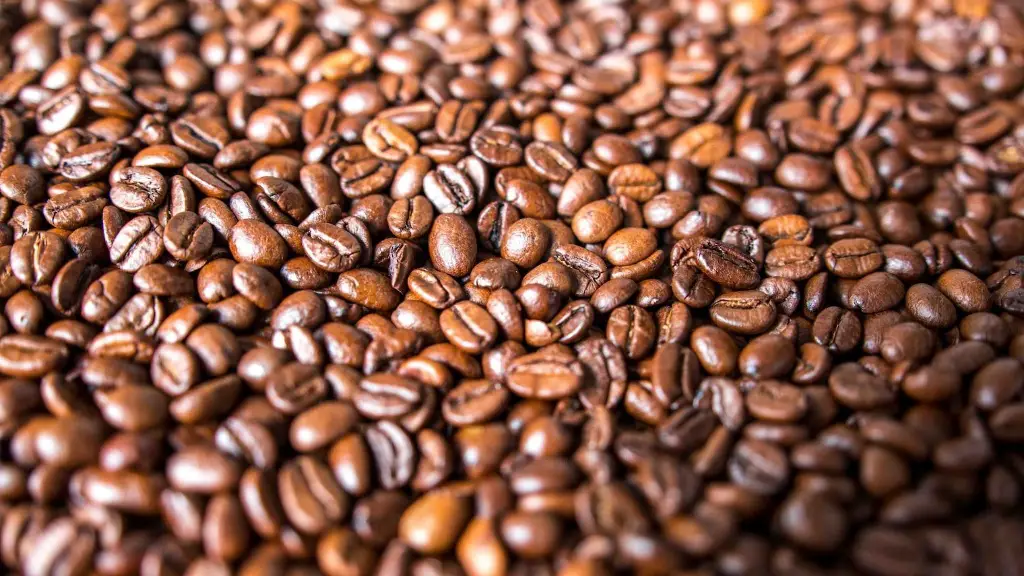Introduction
Coffee has become a major staple in the international lifestyle today and is frequently associated with increased productivity, energy and focus. Whilst many of us can’t seem to go a day without a cup of the delightful brown liquid, drinking too much of it can have a detrimental effect on one’s health. Excessive consumption of the caffeinated beverage can cause withdrawal symptoms, and with the added sugars, syrups and cream, the drink has a high calorie count. In this article, we’ll look at what drinking too much coffee does to our body and mind, further analyzing and exploring its effects on long-term health, along with possible alternatives which can be consumed in place of the usual morning cup.
Cognitive and Physical Effects
Excess consumption of coffee can cause mild to moderate symptoms of caffeine intoxication. Those most affected by caffeine toxicity display both cognitive and physical effects, ranging from restlessness, insomnia and stomach problems to poorer mental performance and headaches. Additionally, studies suggest that drinking too much coffee on a regular basis can increase rates of anxiety and can worsen cases of depression. Jamie Bacharach, a clinical consultant states:
“Drinking too much coffee, especially when our cortisol levels are high can decrease our stress threshold and contribute to higher levels of anxiety.”
Coffee also contains essential micronutrients, such as Vitamin B2, niacin and B5 that can be beneficial in low to moderate doses. According to the National library of Medicine, consuming more than seven 8-ounce servings of the beverage can lead to dehydration, as caffeine is a diuretic and in turn, causes dehydration. Especially when taken in hot temperatures, dehydration can lead to migraines, a frequent sign of overconsumption of coffee. Rare cases of toxicity have resulted in increasing rates of nausea and vomiting, though this only affects a small minority of people.
Long-Term Health Effects
Drinking over seven servings of coffee on a regular basis can lead to long-term health complications. Whilst the cognitive effects of caffeine can be useful short-term in periods of mental stress, long-term consumption of the drink can contribute to anxiety, depression and stress. According to Jaime Bacharach:
“Often we self-medicate our stress and anxiety with caffeine, but all we’re doing is building up tolerance and eventually requiring higher doses of caffeine to get the same heightened feeling.”
Coffee can also disrupt sleep and lead to insomnia, which can directly affect one’s performance at work and professional tasks. Another major complication is decreased calcium absorption, which can weaken one’s bones. According to the National Institutes of Health:
“The high levels of acid present in coffee can interfere with our body’s ability to absorb key nutrients such as calcium, leading to possible complications down the line.”
In some cases, excessive coffee can reduce one’s ability to produce breastmilk. Finally, it has been suggested that women consuming a large amount of coffee can cause irregular menstrual cycles.
Alternatives to Coffee
Given the range of negative effects of drinking too much coffee, it is important to identify and look for safer beverages for those who want to kick their coffee habit. Mary Jane Detroyer, a certified nutrition coach suggests a range of alternatives to coffee, such as:
“Green tea is a great alternative to coffee, as it contains caffeine but with less acidity. Additionally, it is rich in antioxidants and can help reduce cholesterol as well as assist in promoting good overall health. Apple cider vinegar is also a great substitute, and is packed with a range of essential vitamins and minerals. Additionally, due to the presence of acetic acid, it can also reduce blood sugar levels, helping with weight management”
For those looking for healthier alternatives to coffee, Detroyer recommends kombucha and chai tea. Kombucha is a fermented drink made of black tea, white vinegar, and probiotics. Not only does it provide energy but it is also an incredibly powerful detoxifier.
Chai tea is also a great substitute due to its spices, not just its caffeine content. Studies have found that many of the spices commonly found in good chais can actually regulate blood sugar levels, reduce body fat, and even aid digestion.
Mental Health Effects of Caffeine
Studies suggest that drinking too much coffee can impact one’s mental health, in a negative way. It can cause irritation, restlessness, and can even worsen cases of depression and anxiety. In particular, coffee has been linked to higher scores on panic and anxiety symptoms.
Pamela Sanders, certified professional coach states:
“When consumed at high levels, caffeine can disturb your mental wellbeing and cause an impairment in decision-making abilities.”
High doses of caffeine can also increase levels of serotonin, which is commonly associated with happiness. Though this effect of coffee can be useful in increasing one’s mood, it can also lead to addiction. Studies suggest that caffeine can act like a gateway drug, setting the brain off into a spiral of high and lows as one tries to find the perfect dosage to get the same feelings which were available after the initial dose.
Coffee’s Impact On the Liver
Excessive consumption of coffee can have a destructive effect on the liver, specifically when it is combined with alcohol. The combination of the two significantly increases one’s chances of cirrhosis and other liver diseases. Studies conducted by the National Institute of Health have shown that individuals who drink between three and four cups of coffee per day are more likely to suffer from severe liver complications.
Coffee can also lead to fatty liver, a condition where unusually high amounts of lipids accumulate in the liver. In addition to modifying one’s diet and cutting out alcohol, medical experts suggest reducing one’s consumption of coffee as a key solution to fighting fatty liver.
Lastly, people who consistently drink large amounts of coffee are more prone to non-alcoholic fatty liver disease (NAFLD). NAFLD is a common disorder caused by a combination of excessive metabolic stress and excessive fat storage. Generally, it is an asymptomatic condition and can cause many long-term health complications, such as diabetes, heart attacks, and stroke.
Coffee and Cardiovascular Disease
Coffee, in the right doses, can have a positive impact on the cardiovascular system. It helps to reduce the risk of heart attack, stroke, and diabetes by lowering body mass index (BMI), in addition to soothing inflammation of the liver.
However, drinking too much of it can lead to higher levels of cholesterol, increased blood sugar levels, and increased blood pressure. Americans in particular, are some of the highest coffee drinkers in the world, with 53% of Americans drinking coffee every day.
The Harvard T.H. Chan School of Public Health, in conjunction with the World Health Organization, conducted a study comprising of 3.2 million people from 10 countries. The study concluded that drinking more than two to four cups of coffee led to an increase in the risk of cardiovascular disease.
Coffee Intake and Anemia Risk
One of the major problems associated with coffee is that it reduces the absorption of iron from certain foods. As iron is essential for the formation of new red blood cells and the maintenance of vital oxygen levels in the cells, deficiencies can lead to fatigue, pale skin and anemia. Recent research conducted by the Endocrinology Society shows that individuals who drink more than three cups of coffee per day, have a 53% increased risk of developing iron-deficiency anemia.
Therefore, those who consume large quantities of coffee should look into taking iron supplements, or consuming food that are rich in iron such as dark, leafy wells, lentils, eggs and liver.
Coffee and Tooth Decay
In addition to its effects on the body, excessive consumption of coffee can have a major impact on one’s oral health and hygiene. According to Dentist Dr. Berkeley Limmer,
“Colored beverages, such as coffee, are notorious for staining the teeth. As coffee contains acids, excessive consumption of the drink can weaken enamel and lead to tooth decay and sensitivity.”
Regular consumption of sugary drinks or sugary mixers such as cream or syrups can also aggravate the problem, as it aids in plaque formation and increases the risk of cavities. To combat the issue, health experts recommend cutting out any added sugars and cream, as well as drinking lots of water and cleaning the mouth after each cup of coffee is consumed to ensure good oral health.
Coffee and Gout Risk
Another major risk associated with excessive consumption of coffee is gout. Gout is a painful condition that can cause inflammation, redness, swelling, and joint pain. Coffee, as it is a diuretic and directly alters uric acid levels, can irritate the tissues in and around the joints, increasing their risk of developing the condition.
Coffee can also lead to imbalances in calcium and phosphates, which are both essential for proper joint function. Studies suggest that people, who drink more than three cups of coffee per day, are more likely to develop gout, compared to those who drink no coffee at all. In addition to cutting back on coffee, medical experts recommend reducing alcohol and red meat consumption, as these are both known to increase one’s gout risk.
Conclusion
Though coffee can have many positive effects on mental and physical wellbeing, excessive consumption of the beverage can have a number of undesired effects. From cognitive effects, to long-term health complications such as anxiety and depression, coffee should be consumed in moderation. To combat the negative effects of coffee, alternatives such as green tea, apple cider vinegar and chai tea can be consumed in its place. By taking steps to cut back on coffee, one can avoid the range of issues and risks associated with excessive coffee consumption.


